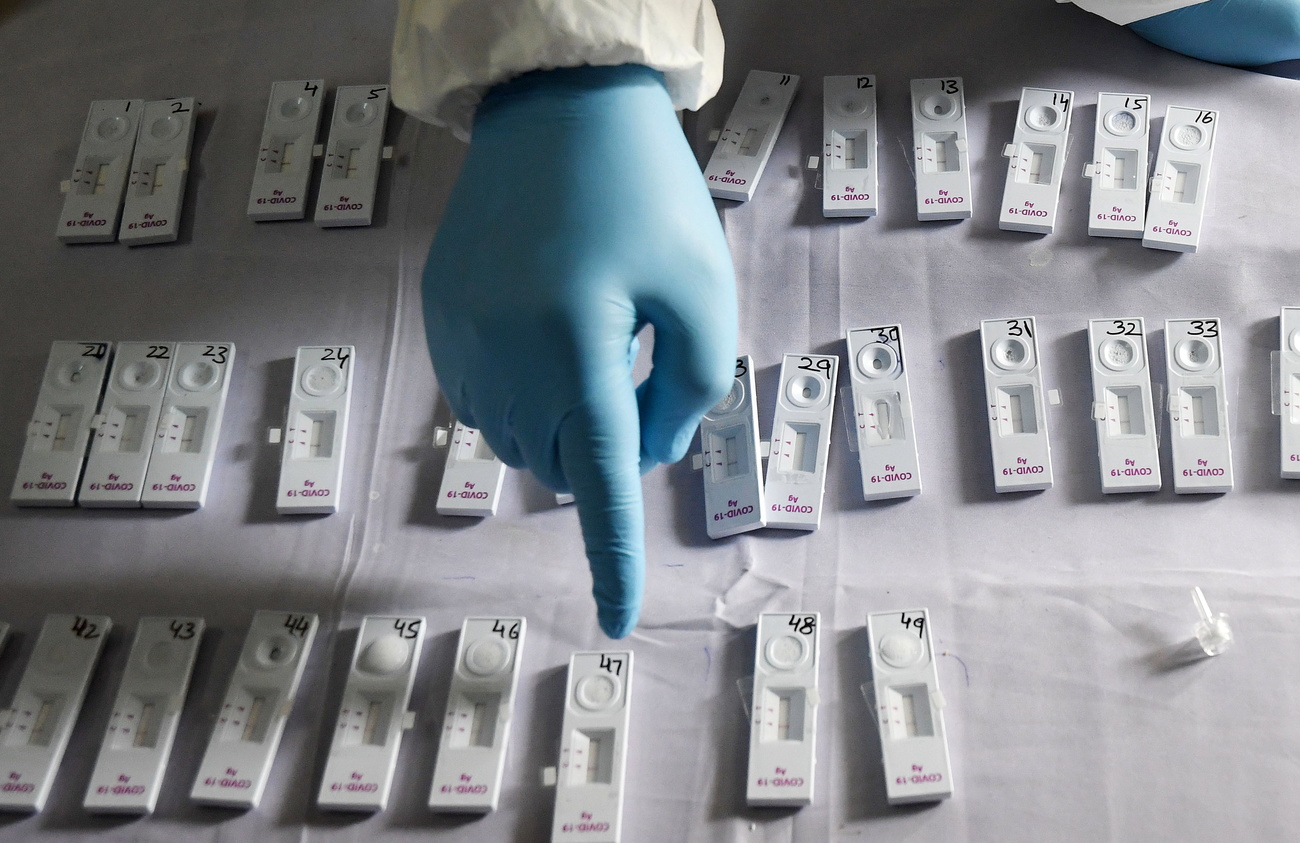
Rapid Covid-19 tests could offer a path back to normal

Swiss pharmaceutical company Roche plans to launch a test that can detect the coronavirus in 15 minutes. Could tests like this become the norm?
With no vaccine in sight for at least a few months, testing is becoming a more important part of containing the coronavirus. Antigen tests, which detect the presence of a specific viral antigen such as proteins, promise to dramatically reduce the cost and time to receive results, allowing people to go about their business.
But rapid antigen tests aren’t as sensitive as the gold standard RT-PCR technology (Polymerase Chain Reaction) that has been widely used until now. With the Roche antigen test, there’s a less than 0.5% change of a false positive, but a 3.48% of a false negative, which means it won’t catch every person infected.
As more countries stock up on rapid antigen tests, some of which are as quick and easy to use as a pregnancy test, how worried should we be if they miss some infections?
Not too worried according to some experts. While the tests still need to be validated by health authorities, they could provide a new way to manage the crisis and avoid costly quarantines by focusing on people who are most likely to spread the virus.
Virologist Isabella Eckerle who is the Head of the Centre for Emerging Viral Diseases at the University of Geneva toldExternal link the German-language newspaper NZZ am Sonntag a few weeks ago that rapid tests are a promising alternative.
Although they are less sensitive, “rapid tests identify infected people who have a high viral load and are currently contagious. When I’m at the end of my illness and only have a small amount of virus left, the rapid test may come back negative, but I’m no longer contagious anyway”.
Intelligent testing
Tim Pfister, CEO at ender diagnostics, agrees with Eckerle and says its time to shift toward what he calls “intelligent testing systems”. Rather than catch everyone infected, Pfister told swissinfo.ch, testing should look for infectious carriers of the virus with tests that are designed especially for that purpose. This helps identify super-spreaders, some of whom may not have any symptoms.
More
“Not everyone who has the virus can transmit it. This is because in order to transmit the virus, you need a certain viral load. And a higher viral load requires less sensitivity to be detected by a test.”
A few months ago, ender diagnostics received the CE mark for its first rapid Covid-19 diagnostics test, which uses a similar technology to PCR called isothermal technology. It recently signed a partnership with SWISS international airlines to test long-haul cabin crew flying to destinations where a coronavirus test is required. It’s now in discussions with other airlines, cruise and resort operators and open-air festival operators.
According to the World Health Organization, Roche is one of nearly a hundred companies developing or manufacturing rapid Covid-19 antigen tests.
Quantity vs quality
Some experts worry that a strategy based on antigen tests will miss infectious people and result in outbreaks in countries that have largely curbed coronavirus transmission. They argue that it’s still unclear what viral load is the threshold below which a person is no longer contagious.
“The question is, what is the safe limit? Because the moment you get that wrong, the whole idea implodes,” Marion Koopmans, a virologist at the Erasmus University Medical Centre in the Netherlands told NatureExternal link magazine earlier this month.
Roche added that because antigen tests are less sensitive than PCR, there is a hypothesis that they identify people who are more infectious, but this has not been fully proven This means that an antigen test might give a negative result for someone with a low viral load but that person could still be infectious.
Currently, there are no truly quantitative tests for Covid-19, said a Roche spokesperson. “The reason is simple. No universally accepted standard for SARS-COV-2 viral load exists.” Efforts led by the WHO to create such a standard are underway but “we are not there yet”.
In a guidance noteExternal link released on September 11, the WHO stated that antigen tests are most likely to perform well in patients with high viral loads but that more evidence is needed.
In hospital settings, experts still encourage the use of PCR tests.
Not so fast
In contrast to many other countries, Switzerland hasn’t been pushing for a massive uptake in rapid testing. The Swiss public health authorities still only recommend people with symptoms get tested.
The NZZ am Sonntag reported over the weekend that health authorities are concerned about delivery bottlenecks if there is a major increase in testing. Last week, some 12,000 tests were carried out a day in Switzerland. There is reportedly enough capacity for 20,000 tests per day.
The government is facing more demands to boost testing, especially from the travel industryExternal link. SWISS have called for testing centres at major Swiss airports instead of quarantines that are currently required for anyone coming from a high-risk area. Several countries including Germany and France require some travelers to be tested for Covid-19 prior to entry.
Last month, the United States announced it was spending $760 million to ramp up production of rapid antigen tests, which have also become a key element in the testing strategies of other countries, such as India and Italy.

In compliance with the JTI standards
More: SWI swissinfo.ch certified by the Journalism Trust Initiative





























Join the conversation!